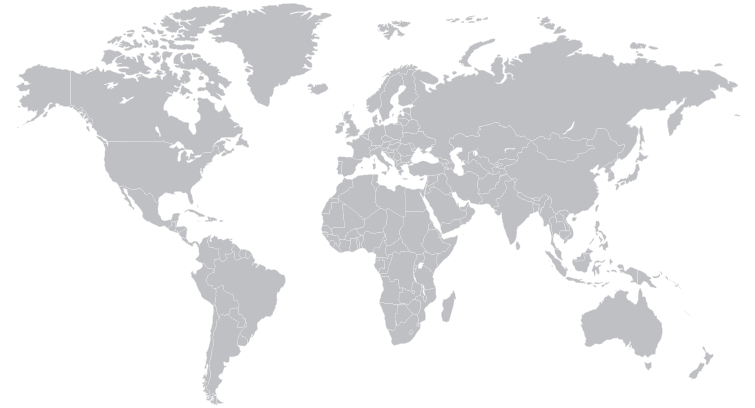Project
USAID Critical Infrastructure Digitalization and Resilience Program (CIDR) in Albania
About
Implementors
Partners
Themes & Topics
Region
Countries
Contact
Mina Hasaj, Project Management Specialist at USAID Mission in Albania
Summary
The Critical Infrastructure Digitalization and Resilience (CIDR) is a USAID-funded initiative dedicated to assisting European and Eurasian governments, encompassing regions such as the Western Balkans, Black Sea, and Caucasus, in enhancing the resilience of their critical infrastructure sectors. This program aims to help these nations integrate cybersecurity best practices into their critical infrastructure operations, planning, and procurement processes. The primary objectives include identifying cybersecurity investment needs, adopting relevant standards and security controls, and establishing the groundwork for regional information sharing on cybersecurity. CIDR focuses on critical sectors, such as energy, water, transportation, healthcare, finance, and telecommunications. By implementing a regional approach that addresses policy development, information sharing, workforce training, and capacity building, CIDR Albania buy-in began in 2023 and ends in 2026 with the aim to bolster the resilience of vital sectors.
Details
Aim
The aim of the USAID Critical Infrastructure Digitalization and Resilience (CIDR) program in Albania is to enhance cybersecurity and resilience of critical infrastructure against cyberattacks through collaboration with the Albanian government, and relevant private stakeholders.
Context
Energy, telecommunications, and electronic services play a pivotal role in enabling individuals to work, connect with one another, and flourish. Regrettably, the vital information networks that underpin these services, along with other critical infrastructure, often find themselves under siege by both individuals and organized groups. When these cyberattacks prove successful, they have the capacity to disrupt or even halt essential services, causing significant disruptions in communities and businesses, and inflicting harm upon nations.
The USAID Critical Infrastructure Digitalization and Resilience (CIDR) program, a five-year initiative overseen by DAI on behalf of the U.S. Agency for International Development (USAID)’s Bureau for Europe and Eurasia, is designed to address these cybersecurity challenges. CIDR collaborates with partner governments and local organizations in assessing cybersecurity deficiencies and establishing priorities, providing recommendations, and devising strategic plans to enhance the security of critical infrastructure and key institutions.
Operating within the Western Balkans, Black Sea Region, and South Caucasus, regions that have witnessed an escalation in diverse and intricate cyberattacks in recent years, CIDR is currently extending its support to Albania, Georgia, Kosovo, Moldova, North Macedonia, and Serbia. This support encompasses various facets such as workforce development, cybersecurity evaluations, cybersecurity governance, and the exchange of information on cyberattacks, threats, and potential solutions.
CIDR conducts various activities, such as facilitating cybersecurity working groups, analyzing national needs, advising on EU-standard cybersecurity, promoting best practices in critical infrastructure, and addressing the demand for cybersecurity professionals. The program also seeks investments from the U.S. and Europe in targeted countries. Additionally, it collaborates with USAID’s U.S.-Europe Energy Bridge program, emphasizing the importance of robust cybersecurity for essential services.
Outcomes
- Establish the policies, frameworks, and consultative bodies necessary to empower critical infrastructure entities to protect and improve the resilience of critical infrastructure key resources.
- Accelerate the development of the workforce among critical infrastructure entities to protect against and respond to threats from malign actors, particularly cyberattacks.
- Empower CI entities to identify and address threats to CI, particularly through the application of US technology and expertise.
- Establish robust information sharing networks between national and regional critical infrastructure entities, promoting coordinated and collaborative response to threats to critical infrastructure
Activities
Smart City Safe City Pilot:
As a component of the CIDR Albania program, the Smart City Safe City pilot initiative in the Municipality of Korcë is a central endeavour aimed at enhancing the cybersecurity and overall digitalization of the region. This initiative involves close collaboration with municipal leadership, donors, and stakeholders to integrate IT management and cybersecurity solutions into the municipality’s broader development plan. Key activities within this component include developing internal IT management and cybersecurity policies, transitioning the municipality to licensed software, and providing technical support for deploying a municipal-level hybrid cloud. This initiative is pivotal in establishing Korcë as a model for other municipalities in Albania, showcasing best practices in cybersecurity and IT management while navigating complex socio-political landscapes and ensuring consistent and coherent work. This project aligns with the broader goals of CIDR in strengthening critical infrastructure resilience.
Additional contacts
Paul Stack, USAID Agreement Officer’s Representative, USAID Bureau for Europe and Eurasia pstack@usaid.gov
Sokol Haxhiu, Country Director for CIDR Albania, sokol_haxhiu@dai.com
Additional link
The 2022 U.S.-EU Cyber Dialogue – United States Department of State
The Cybil project repository is being continuously updated, and the information it contains is either publicly available, or consent for publication was given by the owner. Please contact the portal manager with any additional information or corrections. Whilst every reasonable effort is made to keep the content of this inventory accurate and up to date, no warranty or representation of any kind, express or implied, is made in relation to the accuracy, completeness or adequacy of the information contained in these pages.









